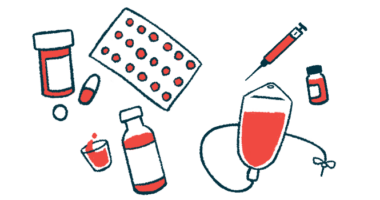US company expands to Africa to speed SCD therapy development
Functional Fluidics also aims to improve care for SCD patients

To help bring new therapies more quickly and cost effectively to those with sickle cell disease (SCD) in sub-Saharan countries — where patients bear a significantly high SCD burden — the U.S.-based biotechnology company Functional Fluidics is planning to expand its operations into Africa.
The expansion is expected in the fourth quarter of this year, Functional Fluidics said in a company press release, noting that its end goal is to improve overall patient care across “the global landscape of sickle cell disease.”
“Functional Fluidics is taking a proactive approach by establishing new operations in sub-Saharan Africa starting in Nigeria in 2023,” said Patrick Hines, MD, PhD, Functional Fluidics’ founder and CEO.
“We are committed to expanding the access to valuable insights on the health of red blood cells that can be obtained from our portfolio of red blood cell biomarkers,” Hines added.
Test by Functional Fluiditics assesses health of red blood cells
According to the company, the global buildout comes after nearly a decade of Functional Fluiditics providing U.S. biopharmaceuticals and clinicians with a suite of clinically validated assays to support treatment development and improve care for those with sickle cell, an inherited disorder that causes red blood cells to take on a sickle-like shape. The misshapen cells can obstruct blood flow, leading to pain crises and other disease symptoms.
Each year, some 300,000 babies are estimated to be born with SCD globally. More than 66% of patients reside in Africa, where more than half of children with SCD die before age 5, commonly from infection or severe anemia. SCD funding, education, and awareness are lacking on the continent, particularly in sub-Saharan countries like Nigeria, where care is generally inadequate.
Despite the availability of proven cost-effective interventions, most African countries lack the resources to provide comprehensive sickle cell care, especially at public health facilities, which often have no SCD-trained healthcare professionals.
Functional Fluiditics wants to help to change that.
Our goal at Functional Fluidics is to help life science innovators accelerate the speed, cost and success rate of bringing new life changing therapies to individuals with sickle cell disease.
Integrating clinical trial support, lab expertise, deep scientific knowledge, and data sciences, the company provides insights into the health of red blood cells, with a current focus on SCD, addressing an increasing need for dependable biomarkers that can monitor red blood cells’ wellbeing.
A recent study that assessed one of Functional Fluidics’ red blood cell health tests — the Flow Adhesion of Whole Blood to VCAM (FA-WB-VCAM) test — found that red blood cell biomarkers might be able to predict SCD severity and the risk of pain attacks, called vaso-occlusive crises (VOCs), that many patients experience. This test is designed specifically to gauge the level of stickiness, or ability to adhere to blood vessel walls, of sickled red blood cells.
A VOC occurs when sickle-shaped red blood cells stick to blood vessel walls and impede blood flow, often resulting in severe pain and sometimes organ damage. Reliable biomarkers could potentially predict VOC severity, and prospectively identify sickle cell patients at risk of experiencing pain crisis complications in the disease’s early stages. Such early identification could allow clinicians to intervene sooner and help prevent organ damage.
“Our goal at Functional Fluidics is to help life science innovators accelerate the speed, cost and success rate of bringing new life changing therapies to individuals with sickle cell disease,” Hines said.







